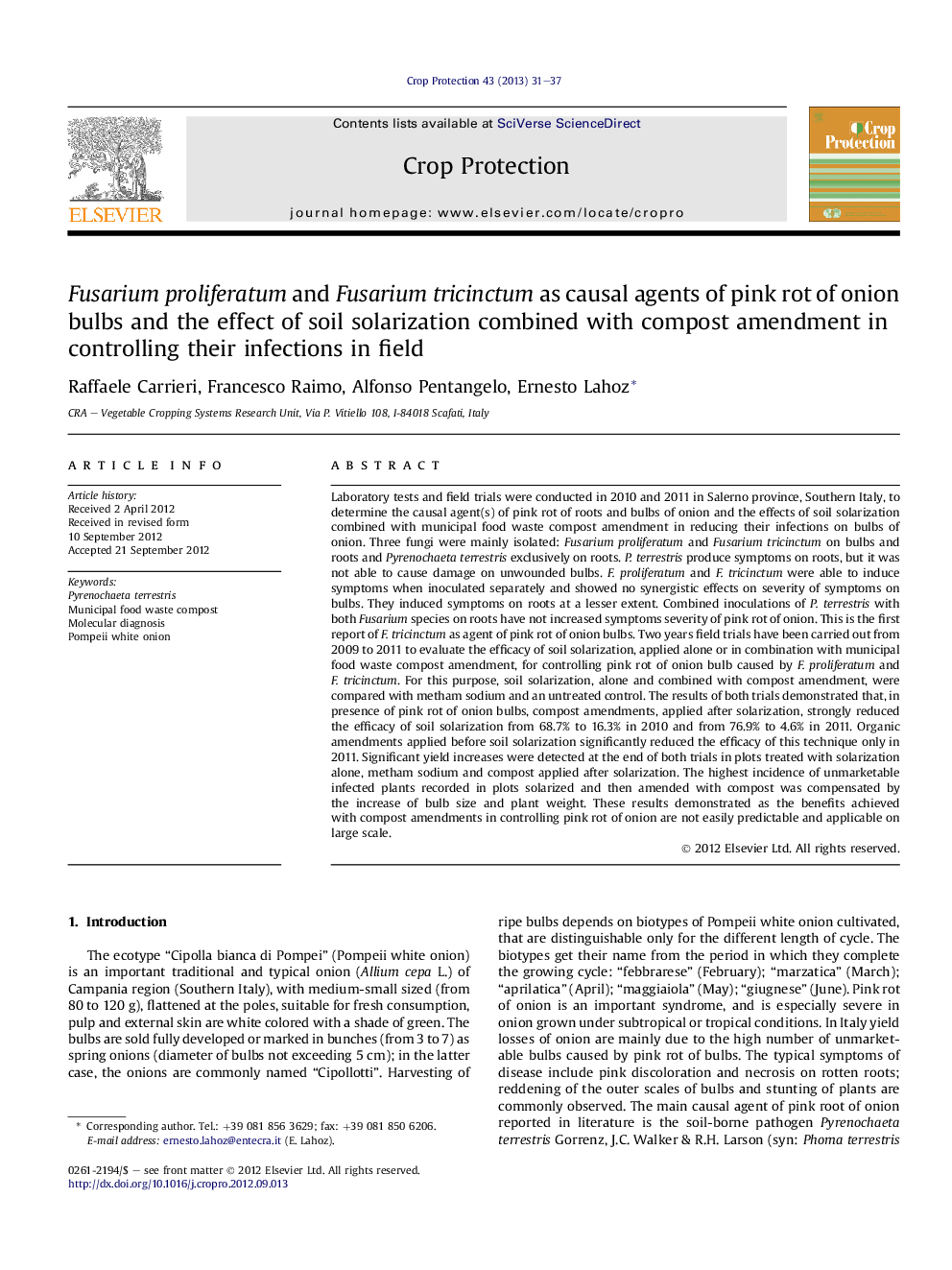| Article ID | Journal | Published Year | Pages | File Type |
|---|---|---|---|---|
| 4506098 | Crop Protection | 2013 | 7 Pages |
Laboratory tests and field trials were conducted in 2010 and 2011 in Salerno province, Southern Italy, to determine the causal agent(s) of pink rot of roots and bulbs of onion and the effects of soil solarization combined with municipal food waste compost amendment in reducing their infections on bulbs of onion. Three fungi were mainly isolated: Fusarium proliferatum and Fusarium tricinctum on bulbs and roots and Pyrenochaeta terrestris exclusively on roots. P. terrestris produce symptoms on roots, but it was not able to cause damage on unwounded bulbs. F. proliferatum and F. tricinctum were able to induce symptoms when inoculated separately and showed no synergistic effects on severity of symptoms on bulbs. They induced symptoms on roots at a lesser extent. Combined inoculations of P. terrestris with both Fusarium species on roots have not increased symptoms severity of pink rot of onion. This is the first report of F. tricinctum as agent of pink rot of onion bulbs. Two years field trials have been carried out from 2009 to 2011 to evaluate the efficacy of soil solarization, applied alone or in combination with municipal food waste compost amendment, for controlling pink rot of onion bulb caused by F. proliferatum and F. tricinctum. For this purpose, soil solarization, alone and combined with compost amendment, were compared with metham sodium and an untreated control. The results of both trials demonstrated that, in presence of pink rot of onion bulbs, compost amendments, applied after solarization, strongly reduced the efficacy of soil solarization from 68.7% to 16.3% in 2010 and from 76.9% to 4.6% in 2011. Organic amendments applied before soil solarization significantly reduced the efficacy of this technique only in 2011. Significant yield increases were detected at the end of both trials in plots treated with solarization alone, metham sodium and compost applied after solarization. The highest incidence of unmarketable infected plants recorded in plots solarized and then amended with compost was compensated by the increase of bulb size and plant weight. These results demonstrated as the benefits achieved with compost amendments in controlling pink rot of onion are not easily predictable and applicable on large scale.
► Onion pink rot agents. ► Soil solarization and organic amendments. ► Field control.
